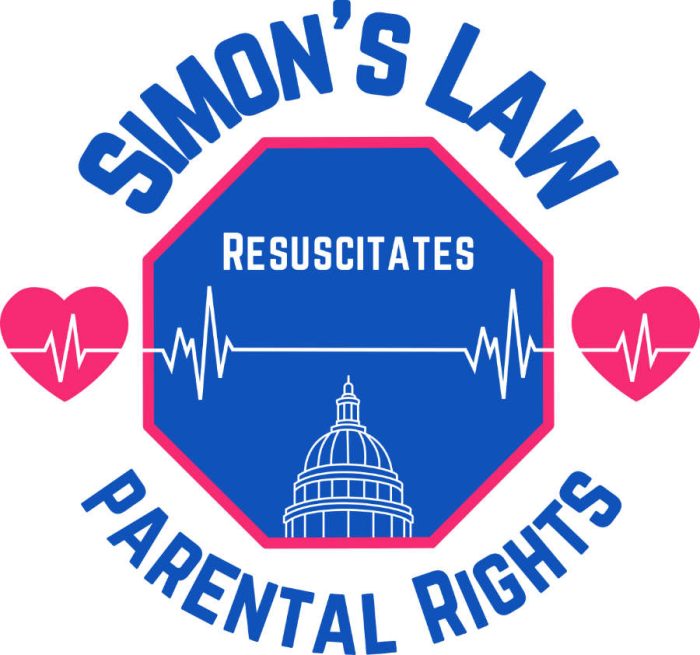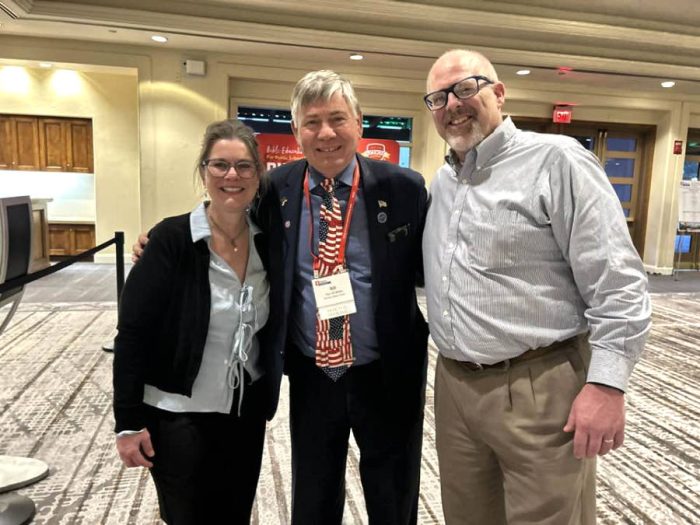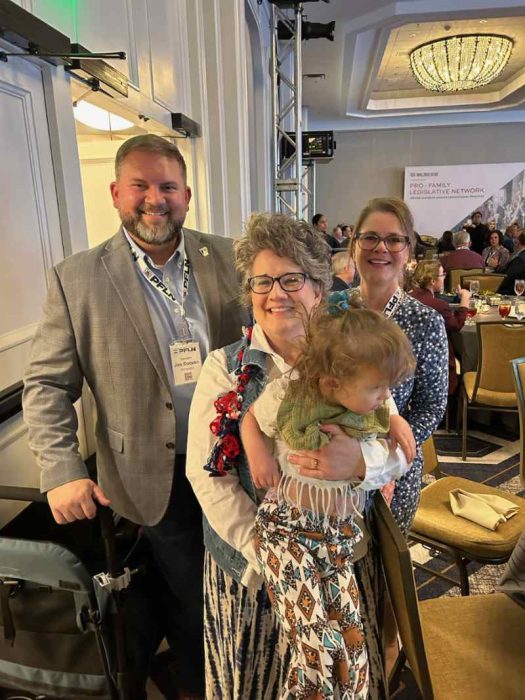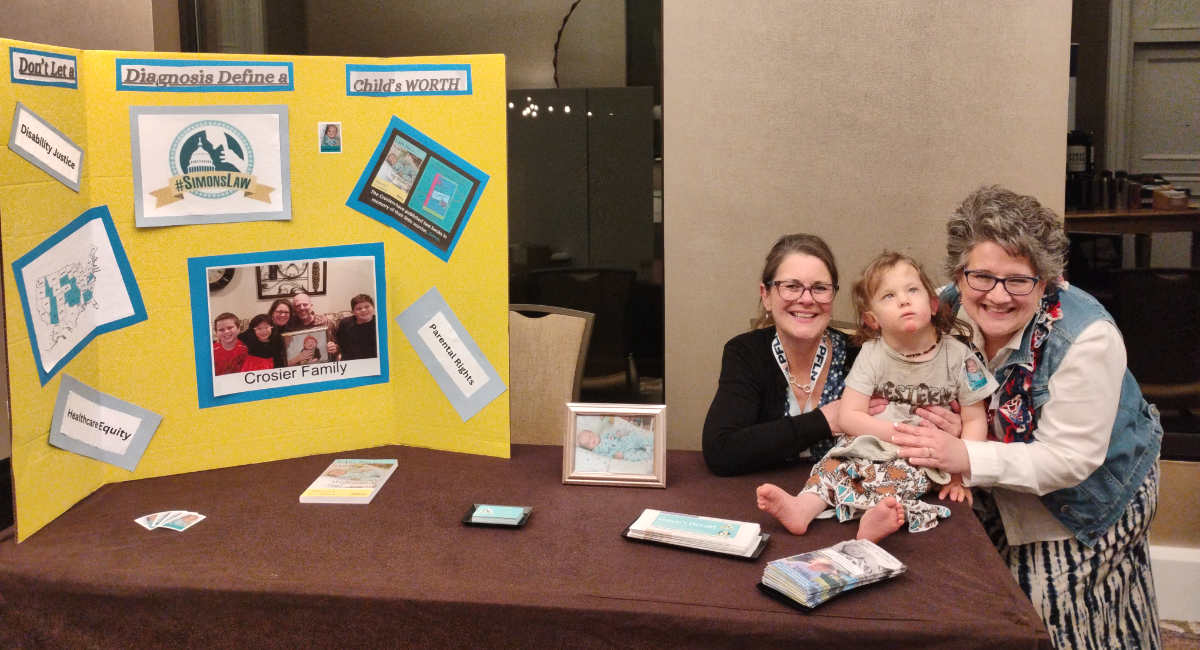Disclaimer: Opinions expressed in this guest post are solely those of the guest author.
Hospitals across our nation are permeated with a Nazi-style eugenics approach to medical care, which increasingly discriminates against differently-abled children by blatantly disregarding parental rights to make informed decisions concerning the administration of life-sustaining care. While both passive and active euthanasia were once unheard of, it is now perfectly legal in most states for a doctor to unilaterally decide that a parent’s precious child is not worthy of life, instructing medical staff to withhold resuscitative measures by placing a Do Not Resuscitate (DNR) order in a minor child’s medical chart — with no effort to obtain parents’ explicit informed consent.
In a society that idolizes “choice”— from “your way right away” fast food to a culture of so-called “reproductive freedom” — one would assume that a decision to choose life with full interventions would be readily accepted and honored. However, going against “expert” medical recommendations by choosing life-sustaining care for children believed to be cognitively impaired (due to their apparent or anticipated inability to communicate sufficiently) requires parents’ constant vigilance, education, and advocacy.
This is because doctors are acting within the authority of their facility’s futility policy to forgo cardiopulmonary resuscitative (CPR) measures — and even delay, withhold, or deny the administration of life-sustaining nutrition, hydration, and oxygen to children who are deemed “incompatible with life” by supposed “evidence-based scientific consensus.”
No matter when or why life-sustaining care is necessitated, every parent should be outraged to know that a complete stranger could be making critical life or death medical decisions for their cherished children behind their backs. These are difficult and complex decisions with grave ramifications resting squarely on the shoulders of parents. Thus, parents’ right to decide what is best for their beloved child’s medical care should be held in the highest regard.

Medically Murdered
Simon Crosier was born in Missouri in 2010 with repairable congenital anomalies. Once a diagnosis of intellectual disability was added, it was noticeably accompanied by a significant reduction in the quality of medical care administered.
Less than three months later, Simon experienced cardiopulmonary arrest and his parents pleaded with NICU staff to intervene. Yet, to the Crosiers’ shock and dismay, neither Simon’s blaring monitor alarms nor his panicking parents compelled any medical personnel to spring into action or initiate a “code blue” resuscitation.
It wasn’t until one of Simon’s nurses remorsefully confessed that medical staff had been prohibited from yielding to the Crosiers’ frantic pleas for resuscitation, that Simon’s parents investigated further. The nurse insisted that they closely examine Simon’s medical records — which revealed a doctor-instituted DNR. They also discovered that the evident reduction in medical care quality callously included systematic starvation and the administration of contraindicated medication with the intention of suppressing Simon’s respiratory drive.
But the most shocking revelation of all was that the Crosiers’ experience was not an isolated incident!
A Providential Encounter
Three weeks after Simon’s death, his mother, Sheryl Crosier, began pouring her heart and grief into writing, “I Am Not a Syndrome–My Name is Simon.” The publication of this book led to media interviews and speaking engagements — one of which resulted in a providential encounter with Bill Kidd, who was later elected to Missouri’s House of Representatives and drafted the very first version of Simon’s Law.
Rep. Kidd introduced Simon’s Law on the fifth anniversary of the exact day and time that Simon passed from this life.
The primary objective of Simon’s Law is to restore healthcare equity and parental rights in decisions relating to life-sustaining care (based on the presumption that the continuation of life is in the minor’s best interest), by stopping doctors from instituting DNRs without the (uncoerced) written informed consent of parents.

Scott & Sheryl Crosier, with sponsor Kansas Rep. Bill Rhiley (center), at NACL
This includes a requirement to aid in the smooth and speedy access of alternative opinions and to cooperatively facilitate a seamless life-sustaining transfer to a different facility. Furthermore, transparency is required on any existing policies involving resuscitation or life-sustaining measures.
Simon’s Law Enacted
While the journey of legislation does not always run smoothly, progress is being made:
- In 2017, Kansas became the first state to enact Simon’s Law.
- In 2019, Arizona, South Dakota, and the Crosiers’ home state of Missouri followed suit.
- In 2020, Iowa, Idaho, and Alabama joined the ranks of Simon Safe States.
- In 2021, Arkansas passed similar legislation, while Georgia passed a version of Gracie’s Law containing Simon’s Law language.
- In 2024, Utah amended existing medical statutes to insert similar protections.
- Additionally, the statutes of Oklahoma and Virginia already contain similar provisions.

Sheryl, Sandi, & Tabitha with Arkansas Sen. Jim Dotson (Simon’s Law sponsor) at PFLC
It is time to move forward
Near the close of 2024, Sheryl Crosier and company were honored to attend our first legislative conferences, where we appealed to hundreds of elected officials for parental rights, disability justice, and healthcare equity in order to protect the Tabithas of society from Simon’s fate.
The opportunity to interact face-to-face with sympathetic legislators from multiple states in one place was most rewarding. Not only were we blessed to form connections with other like-minded organizations, but we were also encouraged by the receptiveness towards Simon’s Law. In fact, legislators from both Maine and Colorado subsequently introduced Simon’s Law in 2025.
The conventions themselves were also tremendously uplifting. We departed fully charged with a renewed sense of urgency to see such parental rights legislation enacted nationwide. Therefore, we are hopeful that the current Congressional climate will usher in passage of the Simon Crosier Act, which seeks to “amend titles XVIII and XIX of the Social Security Act to require providers of services and health maintenance organizations under the Medicare and Medicaid programs to provide for certain policies to be in place relating to do-not-resuscitate orders or similar physician’s orders for unemancipated minors receiving services.”
Author’s Note: Annual conference appearances are necessary for the awareness, education, and advancement of Simon’s Law parental rights legislation, and we humbly ask for your support to underwrite the expenses relating to travel, lodging, dining, registration, and promotional materials for 10-12 legislative conference and committee testimony appearances annually. Legislators interested in sample bill language to introduce in your state may e-mail Sheryl@SimonsLaw.org.
Bio: Sandi Enzminger is Director of Operations for Simon’s Law. Sandi and her husband homeschool six children (the youngest of whom is six years old and thriving with Trisomy 18), on a hobby farm in SW Idaho. Reach Sandi at Sandi@SimonsLaw.org.








